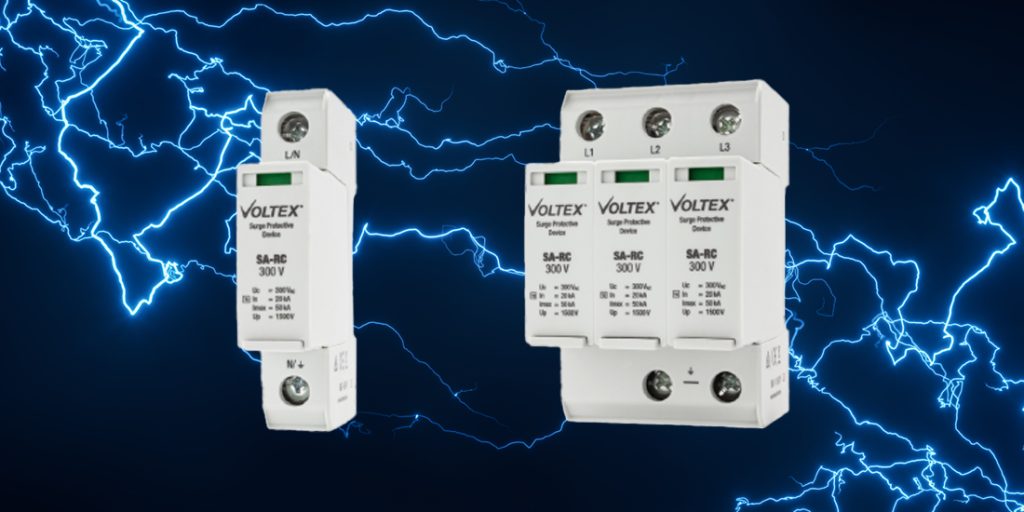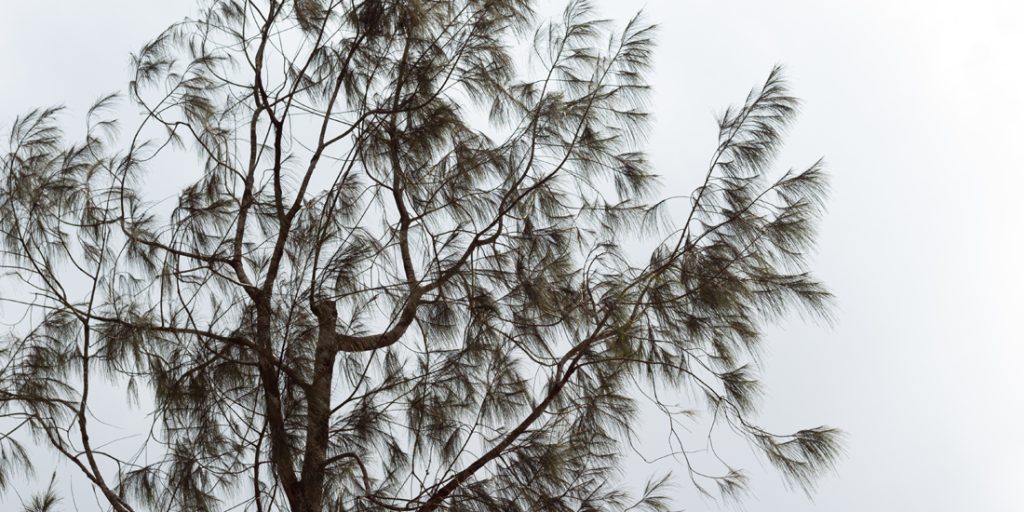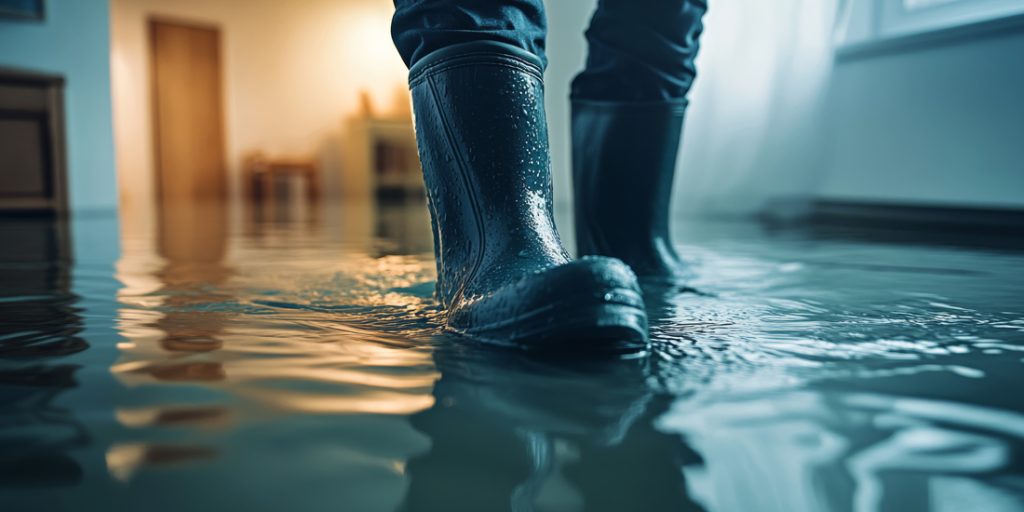The following information comes from: electricalsafety.qld.gov.au
Preparation
- Be prepared for loss of power that could last for more than one week. Ensure your mobile phone is fully charged in case you need to use it in an emergency.
- If you plan to use a generator make sure it is in good working order before you intend to use it. You must have a changeover switch installed if you want to use it to power the wiring of your home.
- Turn off your solar power system by following the manufacturer’s instructions before the storm or flood hits.
- Make sure you know how to turn your mains power off in case you need to do it in an emergency.
- Prepare an evacuation plan that includes where powerlines are on or near your property so you can avoid these while you evacuate.
- If anyone in your house relies on electrical equipment for medical reasons, you must have a plan if your power is cut – don’t assume it will be restored quickly.
During a Storm or Cyclone
- If you’ve lost power, turn off your power points and unplug electrical equipment if it is safe to do so. Don’t go outside during a storm to turn off power.
- Do not run electrical equipment such as generators, extension leads or lighting in wet areas.
- Some storms and floods can last for a long time. If the storm causes damage, do not attempt to make temporary electrical repairs. Turn the power off and have a licensed electrical contractor perform the repairs after the bad weather has passed. If the power cannot be turned off, stay well away from the damaged equipment and call your electricity entity (Energex, Ergon).
- In a flood, place electrical equipment as high off the ground as possible.
Generator Safety
Carbon monoxide (CO) poisoning can kill, so never run generators indoors. Generators can produce high levels of CO, and like electricity, cannot be seen or smelt. If you feel sick, dizzy or weak using a generator, move away immediately and get some fresh air.
Tips for safe use:
- Keep generators outdoors in a well-ventilated area to prevent carbon monoxide poisoning.
- Use portable generators only for essential equipment like fridges.
- Never connect a generator to your house power supply unless fitted with a proper change-over switch by a licensed electrician.
- Ensure power boards and leads are damage-free and protected from water and tripping hazards.
- Remember, ‘Suicide leads’ are extremely dangerous illegally made power leads that must not be used to connect generators to the wiring of your house.
After a Storm or Cyclone
Check your house for damage:
- If your property has been damaged, you will need a licensed electrical contractor to test that your home is electrically safe before you can be reconnected. You should ask for a certificate of test once the work is completed.
- If you remove internal or external wall sheeting after a flood, be careful not to expose electrical fittings. Exposed parts on the back of power points or light switches can cause electric shock or fire.
- If your property has been flooded, make sure any electrical equipment (including plug in items) which has been in flood water is tested by a licensed electrical contractor before using it again.
- If you need to enter your ceiling space to inspect or repair, ensure the power is turned off at the main switch board before entering the space.
- Stay away from damaged or flooded service pillars and report damage to the electricity entity. Service pillars are green or beige plastic boxes which usually sit on the fence line between houses where you have underground power.
- If you have a point of attachment on your house, check if it’s damaged or hanging off the wall or facia. If it is damaged, it must be repaired by a licenced electrical contractor before power can be restored. Your electricity entity will ask to see paperwork (certificate of test) from this repair before they reconnect the power to your property.
Check your solar PV system and battery storage for damage
- If you need to shut the system down in an emergency, follow the shutdown procedures which should be on the inverter or the main switchboard. Don’t turn off the system if any of its components are wet or damaged or internal wires are exposed.
- If your system has been damaged, contact a licensed electrical contractor or installer for advice before you turn it on.
- Solar PV systems will continue producing electricity when exposed to light even if the network supply is turned off or the system has been shut down. Don’t touch them or any conductive material that exposed parts of the system are touching as they may also be live.
- Damaged battery energy storage systems need a qualified person or installer to inspect it before using it again.
Fallen Power Lines
- Be careful cleaning up fallen branches and debris around your property as they could be hiding fallen or submerged powerlines. Treat any fallen or damaged powerlines as live.
- Fallen and low hanging powerlines can be hard to see, especially at night. Stay well away from them and warn others to do the same.
- Report any fallen lines to the emergency services or your electricity entity.
Cleaning up debris and floodwater
- Switch the power off at the switchboard when using water.
- It is illegal and very dangerous to use water pressure cleaners on material that contains asbestos. If you’re not sure, don’t risk it.
- Do not operate appliances or switches while standing in water or with bare feet.
Electric shocks
- Never touch electrical equipment (including conductive material) that has caused a shock. Prevent anyone from using it and have it checked and repaired by a licensed electrical contractor.
- If you experience tingles or shocks from an electrical appliance or taps, this means there could be an electrical problem. Call your electricity entity immediately to check out the problem. Ignoring these warning signs could lead to a much more serious electric shock.
- Never touch or attempt to rescue someone who is receiving an electric shock as you may end up receiving a shock yourself. If possible, turn off the power. Stay clear and call triple zero (000).
- Do not do your own electrical work – it’s illegal and dangerous. Always use a licensed electrical contractor.
- Do not approach property cordoned off with electrical hazard tape.
For Official Updates on Tropical Cyclone Alfred
- First aid and emergency plan information
- The Bureau of Meteorology (BoM) for the latest weather warnings and forecasts.
- Get Ready Queensland for practical advice on storm preparation, including a video on what to expect in a Category 1 or 2 cyclone: Tropical Cyclone Alfred
- Your local council dashboard for updates on local conditions, road closures, and emergency alerts.
- In an emergency, ABC Emergency will provide regular warnings on ABC Radio. You can also find a map of current warnings and detailed information.
- Emergency alert messages are sent from: +61 444 444 444 These messages are not a scam and are official text messages from the Queensland State Disaster Coordination Centre as part of the national geo-targeting emergency alert system.
See electricalsafety.qld.gov.au for more information.



